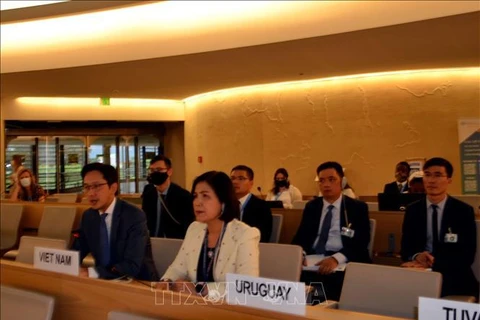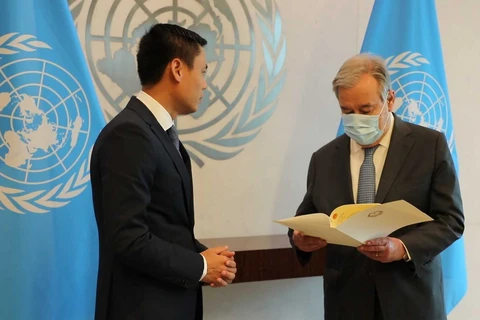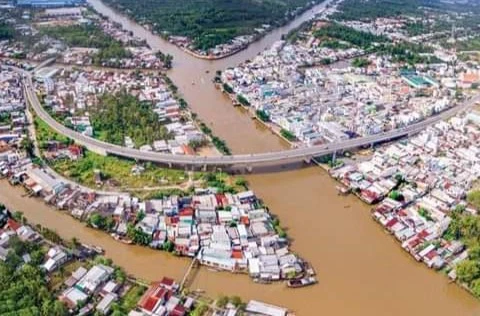Hanoi (VNA) – Deputy Prime Minister Le Van Thanh on July 25 signed a decision approving the project on tasks and solutions to implement outcomes of the 26th United Nations Climate Change Conference of the Parties (COP26).
The project targets activities to reduce greenhouse gas emissions in such spheres as energy, transportation, construction material production and agriculture, while stepping up waste treatment.
Commuters are encouraged to use electricity and green energy, and all of them should use biofuel E5 RON 92 by 2030. Meanwhile, greenhouse gas emissions in the energy industry will be cut by 32.6%; agriculture, 43%; and forestry and land use, 70%.
By 2030, renewable energy, including hydroelectricity, and wind, solar and biomass power, will account for at least 33% of the total electricity output, according to the project.
To that end, the project puts forth major tasks and solutions, including the consolidation of mechanisms, policies and laws, and administrative reform; renewable energy development; energy storage technologies; the reduction of gas emissions in transport and construction material production; green urban development; circular, low-carbon agriculture; the protection, preservation and sustainable use and development of forests; climate change response; and scientific research and innovation.
The project also mentions the establishment of a national renewable energy centre, and the possibility for Vietnam to join the International Renewable Energy Agency (IRENA) and the International Solar Alliance (ISA) to accelerate energy transition and mobilise funding for climate change response and energy transition activities./.
The project targets activities to reduce greenhouse gas emissions in such spheres as energy, transportation, construction material production and agriculture, while stepping up waste treatment.
Commuters are encouraged to use electricity and green energy, and all of them should use biofuel E5 RON 92 by 2030. Meanwhile, greenhouse gas emissions in the energy industry will be cut by 32.6%; agriculture, 43%; and forestry and land use, 70%.
By 2030, renewable energy, including hydroelectricity, and wind, solar and biomass power, will account for at least 33% of the total electricity output, according to the project.
To that end, the project puts forth major tasks and solutions, including the consolidation of mechanisms, policies and laws, and administrative reform; renewable energy development; energy storage technologies; the reduction of gas emissions in transport and construction material production; green urban development; circular, low-carbon agriculture; the protection, preservation and sustainable use and development of forests; climate change response; and scientific research and innovation.
The project also mentions the establishment of a national renewable energy centre, and the possibility for Vietnam to join the International Renewable Energy Agency (IRENA) and the International Solar Alliance (ISA) to accelerate energy transition and mobilise funding for climate change response and energy transition activities./.
VNA























